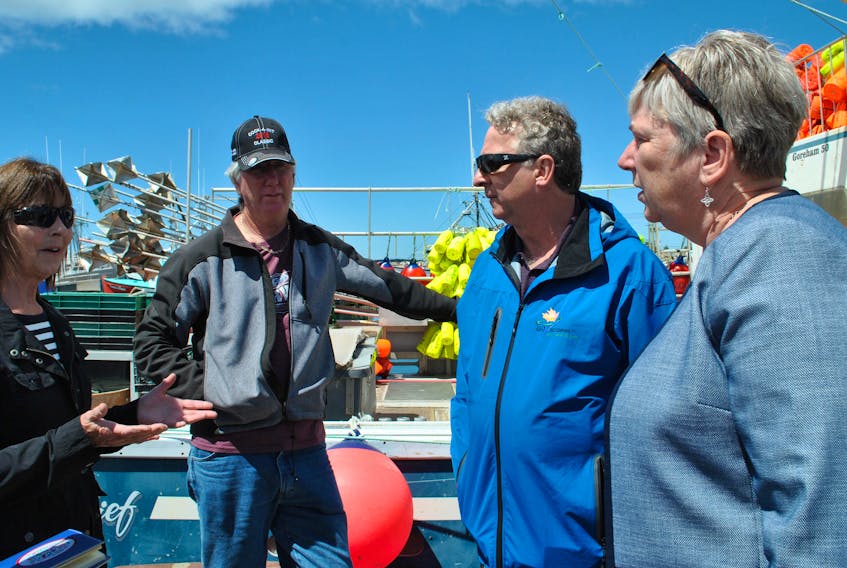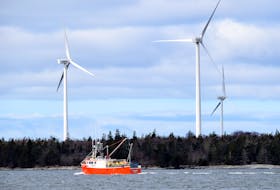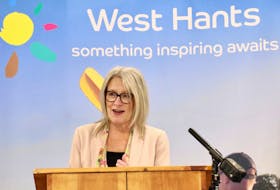SHELBURNE, N.S. — Doubling the annual base funding for the small craft harbours program and creating an additional envelope of money just for maintenance dredging projects are among the 14 recommendations in a report of the House of Commons Standing Committee on Fisheries and Oceans.
The report – Ensuring the Sustainability of the Small Craft Harbours Program – was tabled in Parliament on Feb. 28.

The report follows a study initiated last year by South Shore-St. Margaret’s MP and cabinet minister Bernadette Jordan, who was committee chairwoman at the time, that assessed the current state of small craft harbours in the country and examined emerging and recurring challenges. Wharves in Shelburne and Yarmouth counties were visited and local harbour authorities consulted during the process.
Major funding shortfalls, long-term planning challenges, overcrowding, the impact of climate change on infrastructure, safety and communication issues, and the evolving use of small craft harbours (SCH) are among the issues discussed in the report.
“The committee was informed by the National Harbour Advisory Committee that according to a DFO study based on life cycle management principles, the annual funding required to keep all core fishing harbours in good working condition is estimated at over $150 million annually, but the average A-base annual budget remains at approximately $75‑85 million, excluding salaries and overhead,” reads the report. “The National Harbour Authority Advisory Committee also pointed out that DFO’s SCH program does not have dedicated funding for the maintenance, repair and divestiture of non‑core and recreational harbours. Consequently, this reduces the funding that can be used for capital investments and maintenance of core fishing harbours, and increases DFO’s legal liabilities for non-core harbours because the department is responsible for ensuring public safety at all its harbours, including non-core harbours.”
A‑base funding for DFO’s SCH program has not increased in the past decade, according to the report. “Assistant Deputy Minister Sylvie Lapointe noted that the $92 million in A-base funding has been unchanged since 2009,” and “reiterated that in order to manage the challenges faced by the SCH program it requires a doubling of its A-base funding,” the report says.
While numerous “B-base funding investments” have been made over the past 10 years, including $250 million in Budget 2018 that included small craft harbour improvements in the tri-counties, “there remains a significant funding gap impacting long-term planning,” reads the report. “In fact, B-base funding cannot be used for projects that require medium and
long-term planning. The committee heard that B-base funding is an appreciated infusion of funds, but it must be spent before the end of the fiscal year, which can be a very short amount of time, making it difficult to use funding strategically.”
Major challenges identified in the report with regard to the repair and improvement of harbours include the effects of climate change and overcrowding. “DFO noted that climate change is leading both to greater demands for dredging, but also the extent of repairs required in the wake of intense storms,” says the report, which recommends, “given the impact of climate change and the severity of storms, accelerating the degradation of facilities, as well as growing demand,” that “the government of Canada double the amount of A-base budget available for the Small Craft Harbours program.”
Improving consultation and communication with harbour authorities and users, developing long-term business and/or capital plans for core fishing harbours, building the capacity of the harbour authorities’ volunteer workforce and boards of directors, developing a consistent, common policy as it relates to maintenance for which harbour authorities are responsible, and establishing clear protocols and lines of jurisdictional authority to address challenges harbour authorities face in dealing with delinquent tenants and unsafe or abandoned vessels are among the other recommendations in the report.
The full report can be found online at http://www.ourcommons.ca/Committees/en/FOPO









